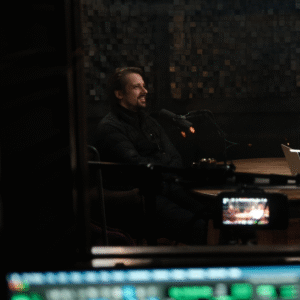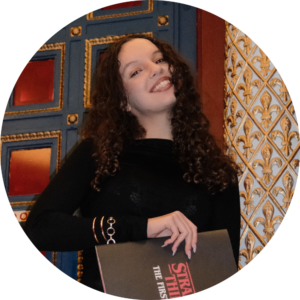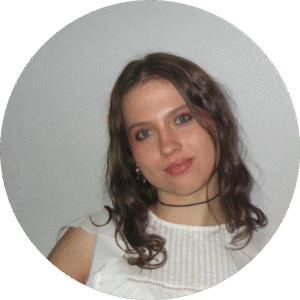Klara Hammudeh, 17, and Kaja Majewska, 16, ask ABC News’ Kuba Kamiński about the prize – and price – of pursuing war journalism


ABC News’ cameraman Kuba Kamiński in conversation with HRB’s Klara Hammudeh and Kaja Majewska.
21 November 2025
‘After all those years, my emotions are totally blocked,’ says war photographer Kuba Kamiński
ABC News’ Kuba Kamiński has taken a camera to the most dangerous places in the world. He witnessed the annexation of Crimea, took pictures at the frontline in Ukraine, filmed Hamas fighters in Gaza, and was there after Israel launched its offensive on the Gaza Strip.
Harbingers’ Politics Section Editor Klara Hammudeh and HRB Film & Book Club writer Kaja Majewska asked him about the costs and rewards that come from catching history on film.
The following excerpt from the recorded interview was edited for clarity and consistency.
Klara Hammudeh (KH): So what makes you do it? What inspires you to go and do it?
Kuba Kamiński: Probably my dysfunctional upbringing. Normal people don’t do that, they don’t throw themselves into conflict zones.
I think my fascination with photography started when I was 14. Then, I went through all stages of photography and discovered that the most interest I have is in human beings and human behaviour. I wanted to pursue the photography of people. I found out that the most interesting thing for me is to take pictures of people in extreme situations. By the age of 16, I knew I wanted to pursue war photography.
When I was 17, I managed to get my first job as a photographer, at one of the biggest newspapers in Poland, Rzeczpospolita. I think it was 2006 when I was sent to Belarus, for the presidential elections. I was 21 years old… sorry, my math is terrible, that’s why I’m a photographer. When I went there and covered the elections, I felt like it’s what I want to do. I was sold on this.
Kaja Majewska (KM): Mental illnesses probably are helpful, but photographing the war is a sensitive topic. Have you ever had any problems when the government wouldn’t allow you to post certain pictures?
Many times I couldn’t take pictures somewhere. Sometimes, you just don’t do it because you can lose your freedom or your life.
It was in 2014, it was the annexation of Crimea. My friend from Reuters called me, told me that there’s one last Ukrainian base that has not surrendered to the Russians and said: “This base is gonna be raided by Russians in the next hour.” I took my rental and I drove to this small town, it was minutes before the Ukrainians stopped letting people in.
I remember we were going over the fence, because the Ukrainians were using plywood and pieces of furniture to stop the Russians. An hour later, the Russians came. They had two armoured cars that went through brick walls and started shooting. We were on the ground, I took pictures of all that.





